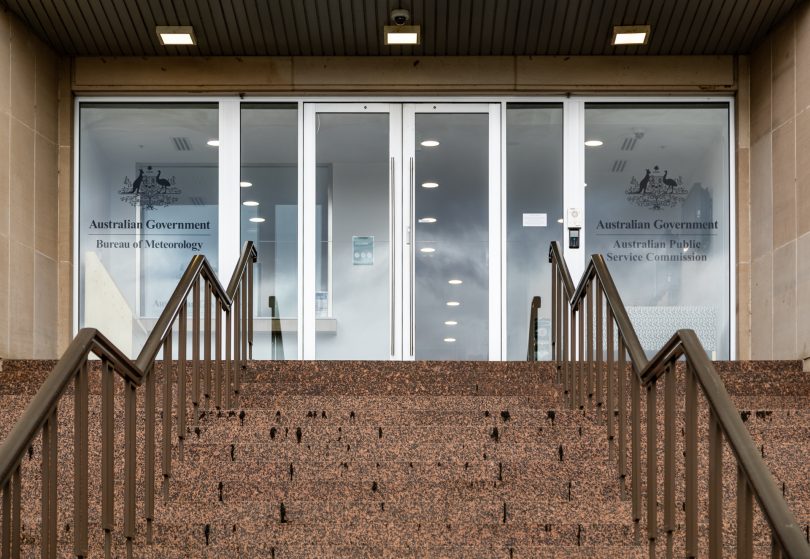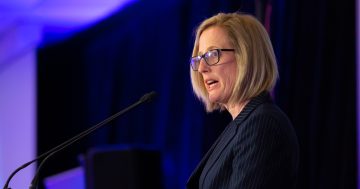
The Australian Public Service Commission has approved 20 SES band 3 salaries in the past three years that go way above what policy recommends. Photo: Michelle Kroll.
More than a dozen senior public servants are being paid way over the recommended salary rate because the Australian Public Service Commission (APSC) has approved exceptions to government policy.
The anomaly has been revealed after the APSC was forced to provide an answer to a Senate estimates question taken on notice, which was initially asked in relation to the almost $900,000 annual pay packet former AUKUS adviser Kathryn Campbell was paid.
While it is up to agency bosses to determine what to pay Senior Executive Service (SES) band 3 employees, those salary packages are not meant to go beyond $488,600 a year.
That’s where the APSC comes in, with the APS commissioner empowered to approve salaries above that rate.
SES 3 is the highest APS level before departmental secretaries and agency heads.
The bosses can apply to the APSC to pay their most senior ranking underlings more than the package set down by the government’s remuneration policy.
The APSC has informed the Senate that above and beyond salaries have been approved for 20 SES band 3 executives in the past three years, with 14 of them still in place.
Chief Medical Officer Paul Kelly is one, receiving about $50,000 more than the recommended salary.
But others – deputy secretaries and associate secretaries – are earning substantially more than $100,000 over the policy’s rate.
The most extravagant salary was for Ms Campbell, who was removed from her role as Department of Foreign Affairs and Trade secretary shortly after Labor won government last year.
She was, however, given a plum job advising the government on AUKUS at a deputy secretary level in the Department of Defence on a salary of $892,630 a year.
Ms Campbell was forced to leave that role recently, following the release of the Royal Commission into the Robodebt Scheme that highlighted her involvement in the illegal debt recovery program.
During Senate estimates in May, the APSC said proper procedure was followed for Ms Campbell’s enormous remuneration arrangements.
“I think this is on the public record, but on 27 June 2022 Mr Greg Moriarty, the Secretary of the Department of Defence, sought approval from the former APS Commissioner to offer Ms Campbell a total remuneration package of $892,630,” deputy commissioner Helen Wilson said.
“He provided justification to the commissioner for that salary, said there were compelling circumstances, and on 30 June 2022 Peter Woolcott, the commissioner, wrote back to Mr Moriarty, advising he approved the remuneration arrangements for Ms Campbell.”
In his letter to the then-APS commissioner, Mr Moriarty argued a case for Ms Campbell’s high wage.
“I propose to offer Ms Campbell a salary commensurate with the significant responsibility and accountability associated with the position,” he wrote.
“In doing so I note the requirement for Senior Executive remuneration to be set in accordance with the APS Executive Remuneration Management Policy.
“On this basis, I propose that Ms Campbell’s total remuneration be set at $892,630. I consider that this is appropriate to the critical nature of the position and experience Ms Campbell will bring to the Department of Defence and more broadly, across government.”
Mr Woolcott replied accepting the advice and approving Mr Campbell’s salary.
The APSC says similar procedures were followed with all SES band 3 salaries currently being paid above the notional $488,600 package.
But in light of the latest revelation about the number of senior executives earning more than the policy allows, there are calls for the framework to be reviewed.
Greens senator Barbara Pocock said the number of exceptions to the rules is concerning.
Further Senate scrutiny on the issue is expected.




















